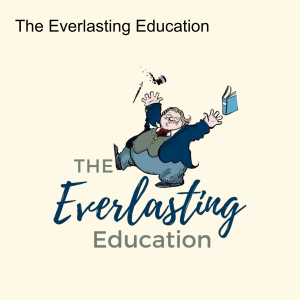

Ep. 13 - Chapter Six of Norms and Nobility: On the Necessity of Dogma
This is Episode 13 of The Everlasting Education Podcast, a Kepler Education Production.
In this episode, Scott Postma and Joffre Swait discuss the importance of dialectical learning and how that is different than dialectical materialism. In Chapter Six, Hicks asserts that "all knowledge of first and final causes in which man defines himself and his purposes begins with doma, not with doubt, and feed on itself dialectically. Man's knowledge is without value to him unless he reaches it dialectically—unless it animates his body, indwells his mind, and possesses his soul. True dialectical education points man upward while its opposites brings man down to his least common denominator, his utility.
David V. Hicks's, Norms and Nobility was first published in 1981 when it won the American Library Association's Outstanding Book Award. Since that time, it has gone on to become one of the most influential books in the Classical Education movement. Hicks's "purpose in writing the book is to offer a personal interpretation of classical education—its ends, as well as some of its means—and to respond to the objections of those who might approve of the goals of such an education, but who believe that it cannot meet the needs of an industrial democracy ro that it is not feasible as a model for mass education."
More Episodes
All Episodes>>You may also like
Create Your Podcast In Minutes
- Full-featured podcast site
- Unlimited storage and bandwidth
- Comprehensive podcast stats
- Distribute to Apple Podcasts, Spotify, and more
- Make money with your podcast












